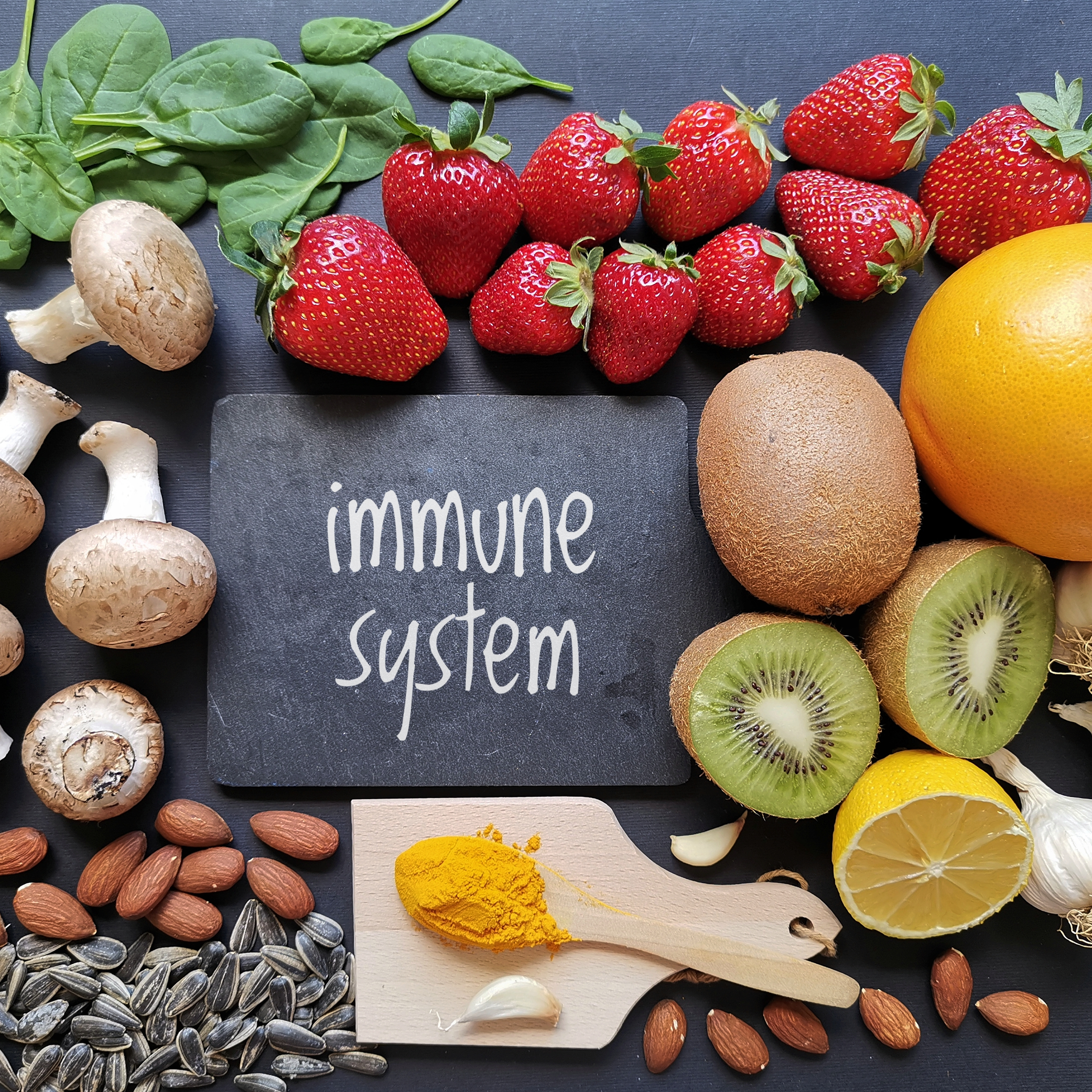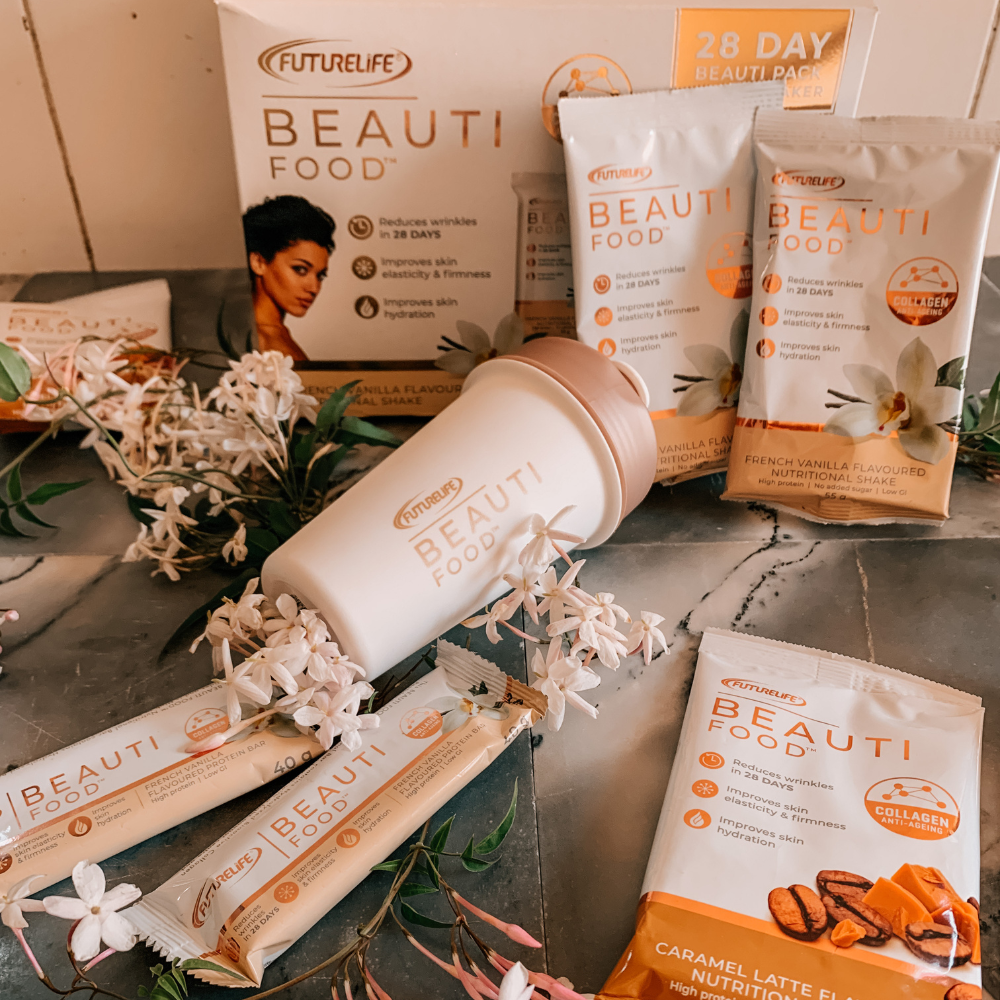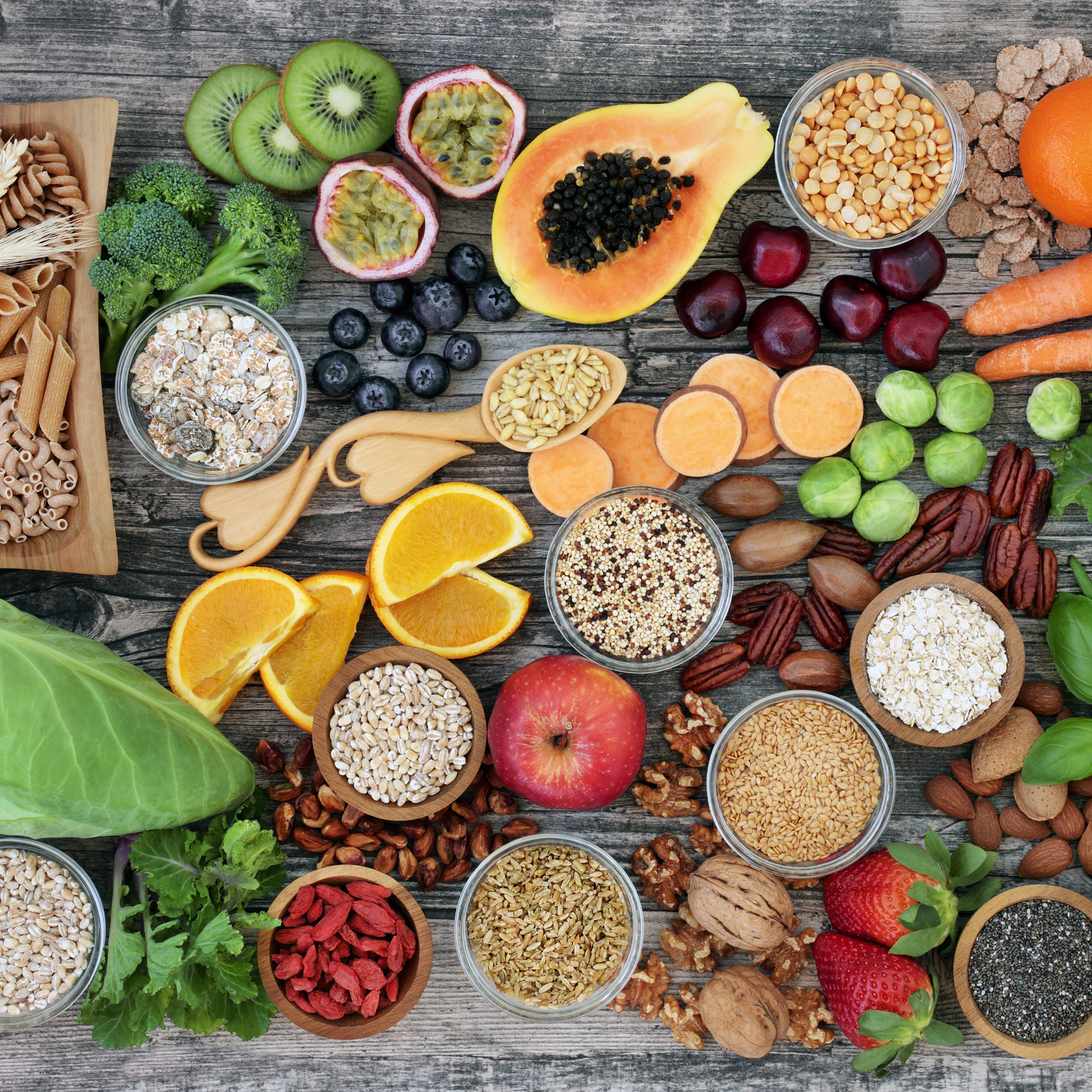HEALTHY EATING DURING PREGNANCY & LACTATION

Expecting a bundle of joy? This is certainly a very exciting time in one’s life but it can also come with many questions and concerns - this shouldn’t be the case when it comes to nutrition. Eating a healthy balanced diet is vital for good health and even more so when you are a mom to be. Many moms say they are ‘eating for two’. Should this be the case? Are there certain foods which are off the menu? Let’s take a closer look.
GENERAL HEALTHY EATING
Most guidelines on healthy eating include the following:
- Eat your five-a-day for fruits and vegetables1.
- Include whole grains and choose more poultry, fish and lean meats1.
- Opt for low-fat, calcium-rich dairy options, drinks lots of water and lastly limit fat and sugar intake1.
Whilst these are key recommendations, they are however very general. For an expecting mom, there are important dietary changes that need to be made.
During pregnancy and lactation a woman has additional nutritional requirements which help to support the growth and development of their baby2. It is, however, important to note that it is possible to reach these increased levels without drastically increasing the amount of food they consume. The reason for this is that our bodies are truly incredible – they become more efficient at absorbing nutrients which allow you to start building up vital vitamin and mineral stores2. Keeping all of this in mind, you will see that there is no need to ‘eat for two’ but rather a need to place a vast amount of focus on eating a high-quality diet.
What’s more?
Following general healthy eating guidelines is great but what else do you need to know? Firstly, you need to eat a variety of foods. This will ensure that you are getting many different vitamins and minerals, all of which play a vital role in the development of your baby. It is best to get vitamins and minerals from the foods we eat, however, sometimes this isn’t possible and supplementation may be necessary. Speak to your healthcare provider to best assist you. Certain nutrients such as folate (folic acid), calcium, iron and omega-3 fats are particularly important during pregnancy3.
Folate (Folic acid)
Folic acid falls in the B-vitamin group. The synthetic form is vitamin B9 also called folate. This helps your body to make new cells2,3. It helps to make normal red blood cells and to prevent a type of anaemia. It is essential for the functioning, production, and repair of DNA4. Getting enough folate is important for the rapid cell growth of the placenta as well as your developing baby. It also helps prevent Neural Tube Defects (NTDs) 4. The part of the embryo from which your baby's spine and brain develop is called the neural tube.
Folate is found in many food sources such as2, 3:
- Lentils and dried beans like chickpeas, black, navy and pinto beans
- Sunflower seeds and peanuts
- Vegetables like broccoli, asparagus, spinach, brussel sprouts, mustard greens
- Some fruits like papayas and avocados
- Enriched pasta
It is however often difficult to obtain the right amount from diet alone. Consider taking a daily multivitamin that has 0.4 mg (400 mcg) of folic acid. Do not take more than 1 mg (1000 mcg) per day unless your healthcare provider advises you to do so3. Give special attention to this guideline if you are vegan. Vegans are at risk of a vitamin B12 deficiency and taking too much folic acid would make it hard to diagnose this deficiency3.
Calcium
Calcium helps with the development of healthy teeth and bones. It also plays a role in heart health, muscle and nerve development5. Getting enough calcium and iodine throughout your pregnancy is important for both mom and baby as calcium gets taken up from your bones and given to your baby3. Aim to include at least 2 servings of dairy every day. 1 serving equates to6:
- 250 ml (1 cup) of 1% or skim milk or fortified soy beverage.
- 50 g of lower fat cheese
- 175 g (¾ cup) of yoghurt or kefir3
The sources above also contain iodine which assist with the brain development of your baby. It is important to note that non-dairy milk such as nut milk, soy milk and oat milk contain virtually no iodine3. Iodine is also important during breastfeeding. Sources of iodine include seafood, iodized salt, eggs, fortified bread and margarine.
Iron
Iron plays an important role during pregnancy and lactation as it helps build new red blood cells and also helps them to carry oxygen. When you are pregnant the amount of blood you carry increases to support both your and your baby’s needs7. The iron you consume during pregnancy will help your baby store enough for when he/she is born3.
Food sources rich in iron include:
- Lean meat, poultry, and iron-fortified cereals
- Cooked organ meats**
**liver and liver products (spreads) are high in iron but are also high in vitamin A. Too much vitamin A may cause birth defects. The safest option is therefore to limit these foods during pregnancy. If you choose to eat liver products limit it to 75 g per week.
The foods sources below are best absorbed when combined with a food containing vitamin C such as orange juice, kiwi, tomato, citrus or tropical foods and bell peppers:
- Dried peas, lentils and legumes
- Dark leafy greens like spinach and Swiss chard2,3
The Centres for Disease Control and Prevention (CDC) recommends 27 mg of iron per day for all pregnant women4.
Omega-3 fatty acids
Omega-3 fatty acids play many important roles in the body. It helps support the immune system, heart, and inflammatory response3. It also helps support the brain, eyes and central nervous system, which makes it so important during pregnancy and lactation.
Getting your omega-3:
- Have two servings of fatty fish like salmon, mackerel, herring, canned tuna in oil, light canned tuna, sardine, hake, rainbow trout, anchovy, mussels. Two servings equate to 150 g of fish per week.
Note: Most fish have low levels of mercury. For healthy individuals low levels of mercury does not cause harm. High amounts of mercury can however harm an unborn baby or young child’s developing nervous system. It is therefore important for pregnant or lactating woman to limit their intake of mercury-containing foods. It is recommended to limit fish intake to no more than two servings of fish per week. AVOID shark, swordfish, marlin, fresh or frozen tuna and any dried fish as these have higher mercury levels.
- Include ground flax seeds, walnuts, chia seeds, soy products and canola oil more often.
- Certain foods are fortified with omega-3 fats – look out for eggs, yoghurt, juice, soy beverages and margarine3,4.
GENERAL DO’S AND DON’TS DURING PREGNANCY
- Enjoy regular physical activity – this should not be more than what you were doing before falling pregnant. NB: Check with your doctor before beginning a new exercise plan3.
- Foods such as meat, fish, poultry, seafood and eggs may have harmful bacteria therefore cooking these foods thoroughly is important to prevent harm to your baby – this means that sushi is an obvious no-no3.6.
- Avoid alcohol during pregnancy and lactation. Alcohol passes into breastmilk within 30-60 minutes (this is the same rate as what it travels through your blood) 3.
- Try to limit caffeine-containing drinks such as tea, coffee, cola, cocoa and energy drinks during pregnancy and lactation. If you must have caffeine, do so in moderation. Limit caffeine to 300 mg per day which equates to 2 cups (500 ml) coffee or 4 cups (1000 ml) of tea. Decaffeinated coffee is the better choice.
- Drink plenty of water. Fluids are especially important during breastfeeding as you need to replace the fluid used in breastmilk. It may be a good idea to have a glass of water or low-fat milk every time your baby feeds2.
- Herbal supplements are not recommended during pregnancy.
- Sugar substitutes are safe when taken in moderation during pregnancy. Make sure that foods made with these sweeteners do not replace more nutritious foods or drinks3.
- If you are overweight or underweight your nutritional needs may vary. Discuss these with your doctor who may refer you to a registered dietitian.
- If you experience any side-effects like nausea, vomiting or constipation ask your doctor or dietitian for help.
- If you are having twins or triplets your needs may be increased – speak to your healthcare provider to find out what amount is right for you. The above healthy eating guidelines will apply but may need to be adjusted to suit your specific needs3.
CONCLUSION
With this exciting time, I urge you to enjoy every moment of pregnancy and lactation. Little sleep and sacrifices will soon be replaced with countless laughs, memories, and love. Making great healthy choices is no longer only important for yourself but also for your baby. I hope this article has eased your mind and made you excited about your and your baby’s healthy and happy future.
WHERE DOES FUTURELIFE® FIT IN
FUTURELIFE® Smart Food® can assist in taking care of your nutritional needs during pregnancy. The following reasons make it the smart choice during pregnancy:
- High in Energy, protein, dietary fibre and omega-3
- Free of the most commonly occurring allergens
- It stays fresh without the use of preservatives
- Contains 50% of all your vitamins and most mineral daily requirements
- Is formulated with MODUCARE®, a daily immune supplement
- It is low GI
REFERENCES
|
|
|
|
|
|
|









